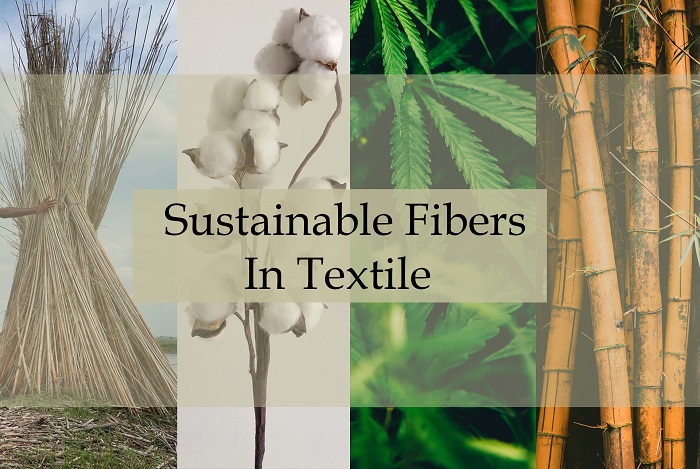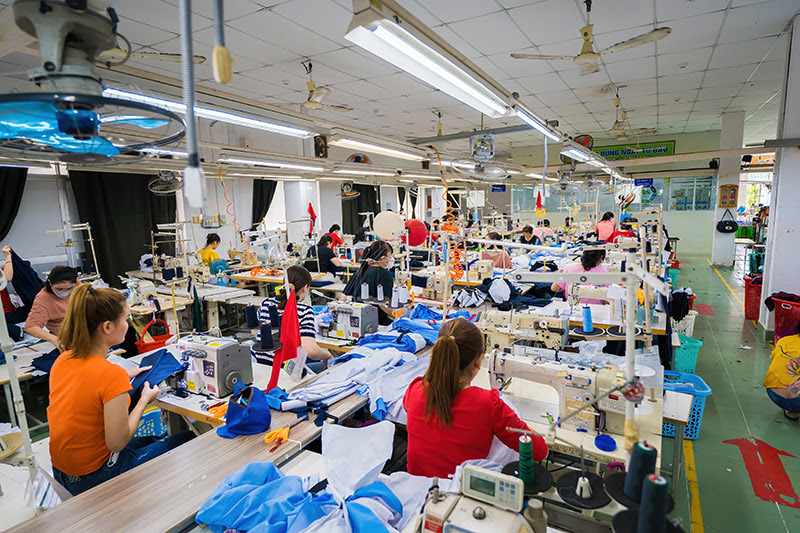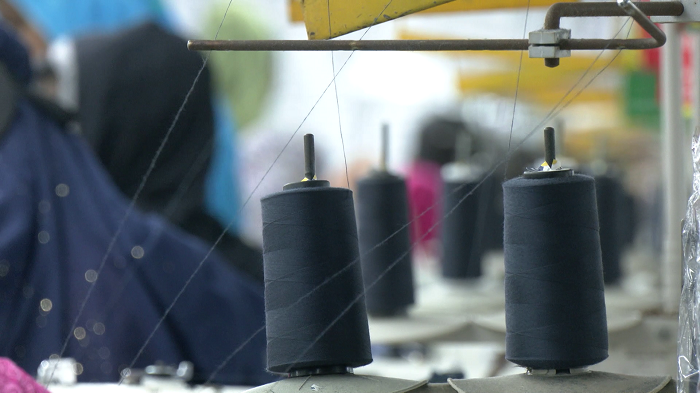With domestic production facing significant setbacks, Pakistan’s cotton imports are projected to rise by nearly fourfold to $1.9 billion in FY’24-25. According to Arif Habib Ltd, (AHL), local cotton production is expected to reach 6 million bales, creating a demand for 5.4 million bales through imports. This would be a dramatic rise from last year’s imports of 1.2 million bales (205,000 tons), valued at $448 million.
As per a report by Pakistan Cotton Ginners’ Association, the country’s cotton harvests declined by 37 per cent during July-Oct’24 to 4.29 million bales from 6.79 million bales in the same period last year. This decline was attributed to poor economics for farmers and delays in planting. Factors such as high inflation, increased costs, and limited resources have affected farmers' ability to invest in cotton cultivation.
Historically, Pakistan’s textile industry requires between 15-16 million bales annually to meet the demand for yarn and finished textile products, including garments for export. However, reduced global demand for textile exports due to high inflation has cut local consumption to around 12 million bales.
AHL notes, the decline in cotton production has been exacerbated by the failure of local policies, including the abrupt changes in wheat procurement in Punjab, which left farmers financially strained and unable to afford essential inputs like seeds and fertilizers. Delays in payments from textile mills to farmers have further hindered cotton sowing in the current season.
In addition to the domestic challenges, cotton prices in Pakistan have declined by Rs 1,000-1,500 over the past week, with prices now ranging from Rs 16,700 to Rs 18,200 per 40 kg.
Pakistan remains the largest buyer of cotton globally, purchasing 72,200 bales in FY25, according to the US Department of Agriculture. In response to the challenges, Naseem Usman, Former Chairman, Karachi Cotton Association, advocate the establishment of an apex committee to address cotton production issues, improve yield, and implement policies to boost domestic output and exports in the long term.
China's economy maintained steady growth in October, driven by strong retail and manufacturing performance, the National Bureau of Statistics reported.
Retail sales of consumer goods increased to 4.54 trillion yuan (approx. $649 billion), marking a 4.8 per cent year-on-year rise, up 1.6 percentage points from September. Sales of household appliances soared 39.2 per cent, fueled by upgrade and trade-in incentives.
Foreign trade grew by 4.6 per cent year on year, reaching 3.7 trillion yuan, with mechanical and electrical products comprising 59.4 per cent of exports, up 8.5 per cent. Fixed asset investment rose 3.4 per cent in the first 10 months, led by a 9.3 per cent increase in high-tech industries, including 8.8 per cent in manufacturing and 10.6 per cent in services.
Urban unemployment dropped to 5.0 per cent, down 0.1 percentage points month-on-month. The real estate sector showed signs of recovery, with slight price rises in key cities like Shanghai and Shenzhen. Analysts expect further improvement in the property market over the next 12-18 months as supportive policies take effect.
The Seventh World Textile Merchandising Conference 2024 recently brought together representatives from over 60 countries in Keqiao, Shaoxing, Zhejiang Province. Themed ‘Future Fashion Advanced by New Quality Productive Forces,’ the event spotlighted technological innovation and global cooperation in the textile industry.
Sun Ruizhe, President of the China National Textile and Apparel Council (CNTAC), emphasized China's role in enhancing global textile development through advanced machinery and affordable products. In 2023, China's textile machinery exports spanned 202 countries, showcasing its contribution to industrial growth worldwide.
Shaoxing’s innovation-led approach was highlighted by Shi Huifang, Secretary of Shaoxing Municipal Party Committee, who detailed achievements like the Zhejiang Modern Textile Technology Innovation Centre and smart industry platforms. Chen Hao, Secretary of the Keqiao District Party Committee, outlined plans to create a world-leading textile cluster, integrating the entire supply chain from polyester spinning to creative design and trade services.
Christopher Pissarides, Nobel Laureate in Economics, praised globalization's role in optimizing production and supply chains, citing improved logistics as a driver of global trade and integration.
Key trends identified in the 2025 Global Textile Outlook include green development, innovation, and advanced materials. Strategic initiatives announced include a Zhejiang workstation for patent examination, collaborations with CNMI, and the WGSN Keqiao Trend Centre project.
The conference underscored the textile industry’s evolution, combining innovation, sustainability, and cooperation to secure a competitive future.
Circulose has announced key leadership changes to accelerate its mission for renewable textiles. Helena Helmersson has been appointed Chairman of the Board, while Jonatan Janmark takes over as Chief Executive Officer. Both will assume their roles on December 1, 2024.
Clara Zverina, Principal at Altor, highlighted the significance of the appointments, emphasizing that Helena Helmersson and Jonatan Janmark bring valuable expertise to advance Circulose as a global leader in circular textiles. She noted that their leadership would strengthen the foundation established by Magnus, who will remain in charge of operations following his successful term as interim CEO.
Helena Helmersson, former CEO of H&M Group, is recognized for her sustainability initiatives in the fashion industry. She expressed enthusiasm about joining Circulose, highlighting the alignment between the company's ambitious agenda and her extensive experience. Helmersson aims to work closely with Altor and the team to drive transformative change in the textile sector.
Jonatan Janmark, formerly a partner at McKinsey & Company, brings extensive experience in guiding apparel companies through sustainable transitions. He emphasized the importance of Circulose's mission to shift the textile industry from a linear to a circular model and highlighted the commitment of the team to driving this transformation despite the challenges ahead.
These strategic appointments signal Circulose’s commitment to advancing circular solutions in the textile sector, strengthening its position as a sustainability leader.
Sympatex Technologies is set to feature its Fiber-to-Fiber (F2F) laminates at the Functional Fabric Fair in Portland, underscoring its commitment to circularity and sustainable apparel. CEO and CSMO Kim Scholze will lead discussions on the company’s F2F portfolio, offering insights into practical solutions for a greener textile future.
Sympatex’s F2F solutions focus on advancing the recyclability of performance textiles through the use of mono materials. These materials aim to overcome recycling hurdles while retaining durability, waterproofing, and other essential functionalities. This portfolio embodies Sympatex’s dedication to closed-loop production, showcasing how sustainable practices can seamlessly integrate into functional apparel design.
Kim Scholze highlighted that the Fiber-to-Fiber approach marks a significant move toward sustainability, focusing on creating recyclable, high-performance fabrics that address both present and future needs responsibly.
In addition to its F2F portfolio, Sympatex will highlight the Responsible Design Guide, a tool encouraging designers to prioritize sustainability from the outset of product development. The company will also introduce the SAM (Sustainability And Me) campaign, which aims to educate families about making eco-conscious choices in children’s footwear through interactive displays.
Sympatex’s presence at the fair underscores its leadership in combining innovation with sustainability, offering solutions that address both industry challenges and environmental imperatives.
Known for its sustainable men’s and women’s denims, Belgian circular denim brand HNST has been acquired by Claes Retail Group, a Belgian company that also owns major fashion brands like JBC—one of the country's largest clothing chains—alongside women’s brands CKS and Mayerline.
With this acquisition, HNST’s products will now be available in JBC stores and on JBC’s online platform.
Since its launch in 2017, HNST has grown from a small-batch producer specialising in jeans made from recycled cotton and Tencel blends to a notable name in sustainable fashion. The brand has collaborated with industry leaders such as European Spinning Group in Belgium, Pure Denim in Italy, and recycling companies across Europe. In 2022, HNST teamed up with eco-design innovator Resortecs to develop products that can be easily disassembled for repair and recycling at the end of their lifecycle. In 2023, the brand underwent a premium rebranding, setting its sights on expansion into the US market.
By 2030, HNST aims to replace 100 per cent of its most-used materials with more eco-friendly alternatives. It also plans to enhance its current circular initiatives and explore new ones.
The Q2, FY25 net profit of leading textile company, Nitin Spinners increased by 33 per cent increase to Rs 42 crore ($5 million) as against Rs 32 crore in the year-ago quarter.
The company recorded a 12 per cent rise in revenues for the quarter to Rs 823 crore, as against Rs 737 crore in the corresponding quarter of the previous fiscal year.
Majority of the company’s revenue was generated from exports which totaled Rs 522 crore while the domestic sales amounted to Rs 300 crore.
Dinesh Nolkha, Chairman and Managing Director, says, the company’s focus on value added segments, optimum utilisation of expanded capacities and cost efficiencies, helped it to achieve encouraging financial results during the quarter despite global challenges.
In the upcoming quarters, the company plans to leverage the low cotton prices to seize new opportunities in the sector and evaluate various growth options,
Founded in 1993, the Bhilwara-based Nitin Spinners offers a complete range of fabrics for fashion, apparel and work wear industry.
Luxury brand Louis Vuitton is unveiling a new popup store near Billionaires’ Row in Manhattan's.
Designed by Shohei Shigematsu of the Office for Metropolitan Architecture, the store features four towering pillars of stacked Louis Vuitton trunks, reaching up to a 50-foot ceiling—a display reminiscent of a giant game of Tetris.
Louis Vuitton has been pushing the boundaries of fashion under the leadership of Pietro Beccari, CEO. The brand aims to strengthen its market position as a cultural icon.
Earlier this year, the brand roped in tennis legends Roger Federer and Rafael Nadal as brand ambassadors for a campaign showing them hiking the Dolomites. In 2023, the brand appointed producer Pharrell Williams as the brand's men's creative director, reinforcing its cultural influence.
A key sector within India’s textile and industrial fabrics industry, the Indian Nylon Filament Yarn (NFY) market is projected to grow at 3.23 per cent CAGR to 52,440 metric tons by 2030.
The market reached a volume of 43,430 metric tons in 2024. Used in textiles, technical fabrics and home furnishings, the demand for NFY is driven by India’s expanding population, shifting fashion preferences, and industrial growth.
West India, especially Gujarat, dominates NFY production, benefiting from a robust infrastructure, strategic location, and skilled labor. The furnishings and upholstery segment is set to lead market growth due to NFY’s durability, strength, and versatility, which suit high-quality home decor applications.
The market faces challenges like fluctuating raw material costs and environmental sustainability. However, innovations in eco-friendly production processes and new applications for NFY are creating opportunities. India's textile industry continues to evolve, with NFY playing a crucial role in meeting domestic and global demands for quality and sustainable textiles.
Driven by the expanding textile and apparel industry, the global yarn lubricants market is projected to grow at a CAGR of 12.9 per cent from 2024-34 to reach a value of approximately $5.7 billion by 2034, as per a report by Transparency Market Research Inc.
Crucial for preventing fiber damage, reducing friction, and enhancing the efficiency of spinning and weaving machines, yarn lubricants are indispensable in large-scale textile production. As manufacturers seek to optimise their processes, the demand for high-performance yarn lubricants, which can withstand the demands of modern, high-speed textile machinery, is set to rise. The continuous development of advanced textile machinery requires lubricants that offer long-lasting protection and minimise maintenance needs.
There is a growing emphasis on sustainability in the yarn lubricants industry. Demand for biodegradable and chemical-free yarn lubricants is rising as textile manufacturers strive to reduce their environmental footprint. Regulatory frameworks such as the EU's REACH guidelines are pushing lubricant manufacturers to develop greener alternatives. Consequently, the market for bio-based yarn lubricants, which align with these sustainability goals while maintaining performance, is expanding.
Furthermore, as consumer demand for high-quality textiles with superior durability, aesthetics, and comfort grows, manufacturers are focusing on producing yarns with enhanced properties like softness, strength, and color fastness. Yarn lubricants play a vital role in achieving these qualities by reducing friction and preventing yarn breakage, thereby improving the overall texture and quality of the yarns.
As textile producers strive to meet the demand for premium fabrics, the adoption of advanced yarn lubricants will continue to grow, ensuring better product quality and higher manufacturing efficiency.
- 1
- 2
- 3
- 4
- 5
- 6
- 7
- 8
- 9
- 10
Peeling Back the Fabric: Glimpact study gives true ecological threads of apparel…
A groundbreaking new study by Glimpact, has pulled back the curtain on the often-obscured environmental footprint of the apparel industry,... Read more
Embracing Innovation: The rise of sustainable fibers in a changing world
The quest for sustainable and high-performance alternatives to traditional resources has sparked a revolution in fiber use. According to the... Read more
Garment Tech Istanbul to showcase cutting-edge apparel technology and drive glob…
A global hub for apparel innovation Istanbul will welcome leading global players in garment, embroidery, and textile machinery from June 25... Read more
From discarded threads to global trends, Panipat's recycled yarn revolution
Panipat, a city synonymous with textiles, is rapidly evolving from a traditional weaving hub to a powerhouse of sustainable yarn... Read more
Bangladesh emerges strong in global RMG exports as China's loses ground
Bangladesh is rapidly strengthening its position as a major player in the global apparel export market, capitalizing on a shift... Read more
Blossom Premiere Vision returns in June to support luxury fashion's shifting nee…
As the global luxury goods market grapples with a prolonged slowdown, an industry once resilient to crises is now undergoing... Read more
Monforts technologies power sustainability showcase at Kingpins Amsterdam
Denim mills using Monforts systems dominate eco-focused fabric displays At the recent Kingpins Amsterdam exhibition held on April 16-17 at the... Read more
Bangladesh RMG exports navigate new skies amid cost concerns post India's trans-…
Bangladesh's RMG export is adapting to India's revocation of trans-shipment services, marked by maiden freighter flight carrying 60 metric tons... Read more
A stitch in time, fashion's 1% solution to a carbon crisis
The fashion industry, built on trends and textiles, is facing a stark reality: its environmental footprint is unsustainable. Hidden deep... Read more
Threadbare Foundations: Bangladesh’s RMG boom hangs by Indian yarns
Bangladesh’s ready-made garment (RMG) industry is a global juggernaut. Second only to China in apparel exports, the sector is the... Read more












